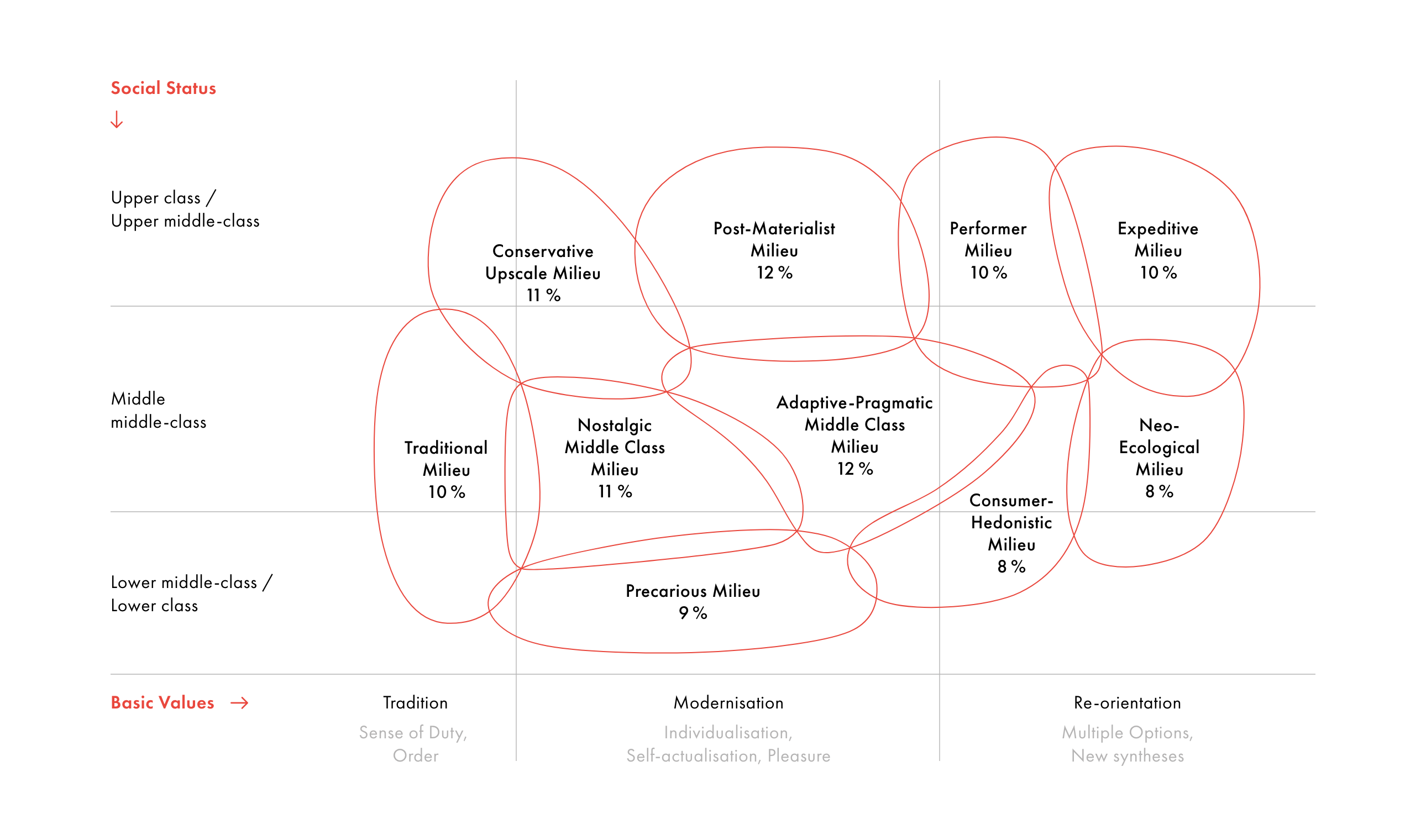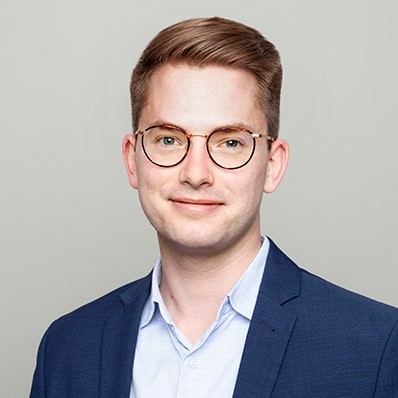Germany in transition:
SINUS-Institut presents updated model of German society:
New Sinus-Milieus®
For four decades, SINUS-Institut has been researching people’s changing values and lifestyles. This has resulted in the Sinus-Milieus model, a “map” of society and its constituent target groups. The Sinus-Milieus reflect Germany’s new everyday social reality - shaped by political changes, digitalisation, populist movements, and the increasingly incontrovertible reality of climate change.

The Sinus-Milieus cluster people into groups on the basis of similar values, lifestyles, and social situations. The Sinus-Milieus reveal what values and life goals motivate the different groups in our society - thereby providing insight as to how these groups can be moved (e.g., via media use, communication preferences, educational programmes, etc.).
The end of the middle class as we knew it
Since society is constantly changing, its constituent social milieus are also constantly in motion. On the one hand, the fluctuation of socially dominant values leads to shifts in the milieu landscape. On the other hand, every generation of young people is confronted with new sets or hierarchies of values, which can then lead to the formation of completely new milieus. Values, in turn, change as a result of the events and developments that permanently alter society. In contemporary German society, key events and developments are, among others: climate change, migration, the pluralisation of lifestyles, the increasing polarisation of wealth, digitalisation, and the aestheticisation of everyday life. Over the course of recent decades, these megatrends have led to ongoing changes in the milieu panorama.
The following developments in particular have changed the milieu landscape in Germany:
1. Tensions and reconfiguration within the middle class
The most significant socio-cultural shifts in Germany are currently emanating from the centre of society. The clusters of like-minded people that have historically formed the middle class are drifting apart. The status-conscious and optimistic fraction is modernising and looking upwards. The larger, harmony-oriented fraction sees its lifestyle and principles devalued by society and has begun to withdraw, self-consciously differentiating itself from both those above (the “elites”) and those below (the “underclass”). Social cohesion is decreasing because the shared belief in continuous gains in prosperity and security is eroding.
2. Sustainability, resilience and diversity as new core values
Sustainability has become a society-wide norm, and is thus guiding everyday actions in more and more milieus. Sustainability is no longer a question of "yes" or "no", but of "how". In the face of new distribution struggles, this leads to concerns about inclusion and fears of higher living costs in parts of the middle and lower classes. Although the concept of sustainability is acceptable to the majority today, this concept is understood and lived in very different ways in each milieu.
Because the pressure for autonomy and self-determination has continued to grow in the modern high-status segment of society, the ability to change and agile crisis management (resilience) have become core competencies. These competencies strengthen the influence of the new leading milieus. At the peak of society, a new cosmopolitan elite has emerged.
Older, traditional social groups have also modernised to some extent. Across all milieus, the acceptance of pluralised lifestyles has increased. Diversity has established itself as a new social norm.
New milieus offer hope
The Adaptive-Pragmatic Middle Class Milieu is moving into the centre of the social mainstream, taking the place of the former Modern Mainstream Milieu, which is worried about decline. The Nostalgic Middle Class Milieu is retreating into a niche, and is becoming increasingly critical of the social and political system.
Due to the growing importance of sustainability and climate protection, the former Liberal-Intellectual and Social-Ecological Milieus have merged into a new social leadership milieu: the Post-Materialist Milieu. In addition, a new milieu has emerged that sees itself as a driver of social transformation: the Neo-Ecological Milieu, which focuses on global networking, social added value, and post-growth ideals. In this new milieu discovered by SINUS, the mixture of values is particularly colourful: typical representatives are at the same time progressive and realistic, pragmatic and eager to experiment, success-oriented and party-loving, determined and relaxed.
At the same time, we observe a declining hedonistic mentality in the other milieus, resulting in the end of the much-cited "German fun-loving society" (Deutsche Spaßgesellschaft). A fraction of the Consumer-Hedonist Milieu, while still focused on consumption and entertainment, now sees itself as part of the new middle class and as a bulwark against the “political correctness” of the progressive elite.
About SINUS-Institut
SINUS Markt- und Sozialforschung GmbH, with offices in Heidelberg and Berlin, has specialised in psychological and social science research and consulting for over 40 years. SINUS develops strategies for companies and institutions that use socio-cultural change as a success factor.
A key tool is the Sinus-Milieus model - a model of society and target groups that summarises people according to their lifestyles in "groups of like-minded people". For decades, the Sinus-Milieus have been one of the best-known and most influential segmentation approaches in the German-speaking market and are available for over 48 countries.
SINUS cooperates closely with its sister companies INTEGRAL Markt- und Meinungsforschung in Vienna, Austria, and OPINION Market Research & Consulting, Nuremberg, Germany (INTEGRAL-SINUS-OPINION Group).

